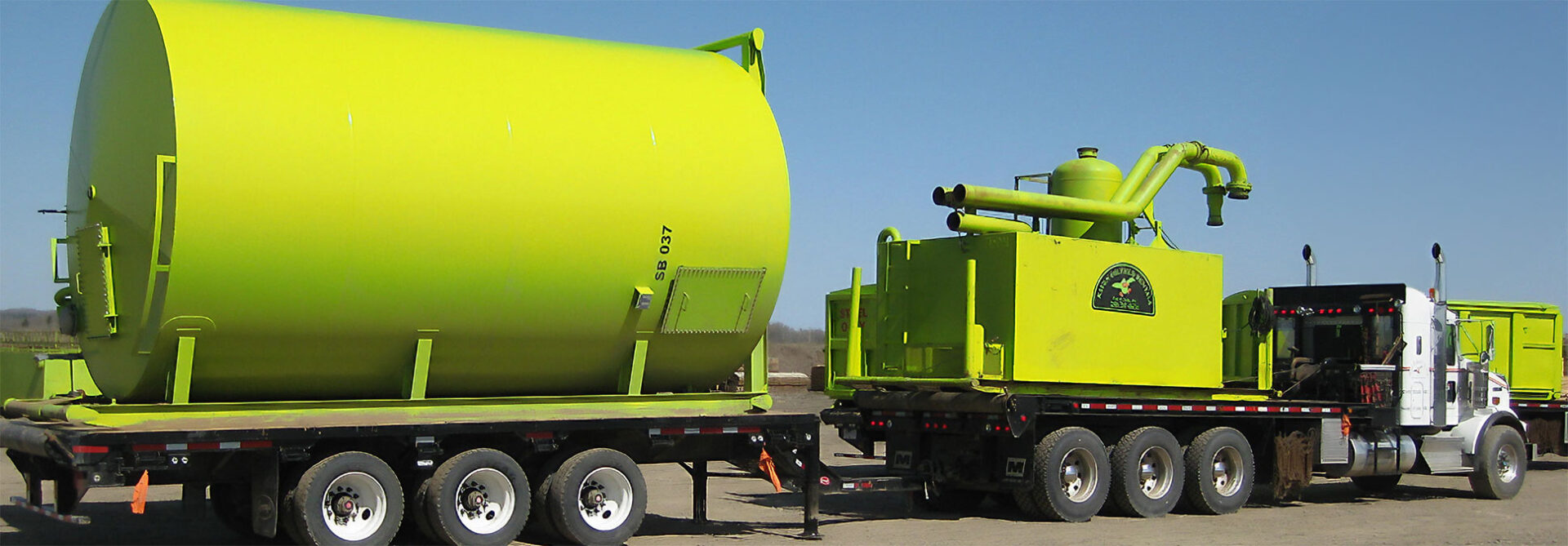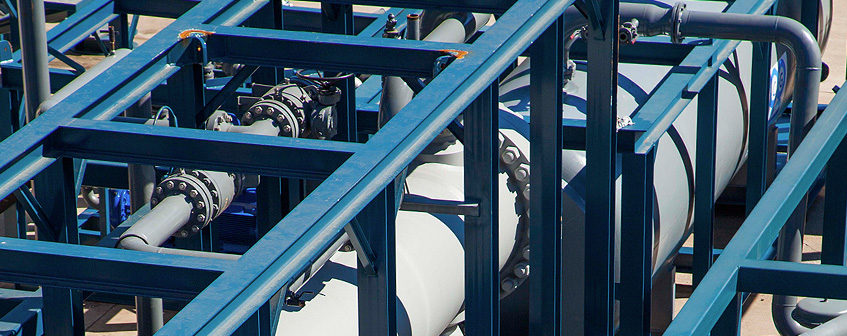Superior Rentals midland: local company profile for energy operators
A Comprehensive Guide to the Different Kinds Of Oil Field Equipment and Pipeline Equipment Available
The oil and gas industry counts greatly on specialized devices for reliable removal and transport. Numerous kinds of machinery, from drilling rigs to tank, play important functions in this complex process. Each tool serves distinctive features that contribute to general operational success. Understanding these elements is vital for any individual included in the sector. As the sector develops, so too do the modern technologies that sustain it. What developments are on the horizon?

Drilling Rigs: The Backbone of Oil Exploration
Drilling rigs act as the essential equipment in the domain name of oil exploration, enabling business to gain access to hydrocarbon books hidden deep below the Planet's surface. These rigs are available in different types, consisting of land rigs, offshore rigs, and mobile devices, each created to run in particular atmospheres. Geared up with innovative modern technology, drilling rigs can penetrate geological developments with accuracy, ensuring effective source removal. The structural honesty and operational capabilities of these rigs are important, as they should hold up against extreme problems and substantial pressures. Furthermore, the option of a drilling gear impacts the overall job price and timeline, making it an important consideration for oil business seeking to maximize their exploration efforts and make the most of performance in their operations.
Pumps: Necessary for Fluid Activity
In the oil extraction process, the role of pumps is considerable, promoting the activity of liquids throughout various stages of production. Pumps are crucial for moving unrefined oil, water, and various other liquids from below ground tanks to the surface and afterwards through pipes to refineries. They come in different types, including centrifugal, positive displacement, and submersible pumps, each offering certain purposes based upon the liquid characteristics and functional requirements. Centrifugal pumps are generally made use of for their effectiveness in high-flow applications, while positive variation pumps stand out in handling thick fluids. The option of pump impacts overall performance, functional safety, and upkeep prices. Proper option and maintenance of pumps are crucial for optimizing production and lessening downtime in oil field operations.
Shutoffs: Managing Circulation and Pressure

Valves play a crucial role in managing the flow and pressure of fluids within oil fields and pipelines. Different sorts of valves offer distinctive applications, each made to meet details features basic for effective operation - Superior Rentals Contact. Understanding the attributes and usages of these shutoffs is vital for optimizing system performance and security
Sorts of Valves
Vital elements in oil field procedures, shutoffs play a crucial role in managing the flow and pressure of fluids within pipes and equipment. Numerous kinds of valves are utilized to satisfy the varied demands of oil and gas production. Typical kinds consist of entrance valves, which supply a straight-line circulation and marginal pressure decline; world shutoffs, recognized for their throttling capabilities; and ball shutoffs, recognized for their fast on/off control. Furthermore, check shutoffs stop heartburn, while butterfly shutoffs provide a lightweight solution for managing circulation. Each shutoff kind is created with certain materials and configurations to stand up to the severe problems usually discovered in oil fields, making certain dependability and efficiency in procedures. Understanding these kinds is crucial for reliable system administration.
Valve Applications and Features
While various sorts of valves serve unique purposes, their main applications rotate around managing circulation and pressure within oil and gas systems. Valves such as gateway, globe, and round valves control liquid movement, making certain peak performance and security. Gateway valves are frequently utilized for on/off control, offering marginal circulation resistance. Globe valves, on the various other hand, offer accurate circulation regulation, making them suitable for throttling applications. Round valves are favored for their quick procedure and limited securing abilities. On top of that, stress relief valves are critical for avoiding system overpressure, guarding equipment integrity. Generally, the ideal option and application of shutoffs enhance operational effectiveness, making sure the reliable transport of oil and gas through pipelines and processing facilities.
Compressors: Enhancing Gas Transport
Compressors play a crucial role in the efficient transport of gas, ensuring that it relocates smoothly with pipes over lengthy distances. These devices enhance the pressure of gas, allowing it to overcome rubbing and altitude adjustments within the pipeline system. In addition, compressors assist in the harmonizing of supply and demand, fitting fluctuations in consumption and production prices. Numerous kinds of compressors are used in the sector, consisting of centrifugal, reciprocating, and rotating screw compressors, each offering unique advantages based on the functional needs. Normal upkeep of these compressors is important to optimize effectiveness and reduce downtime, ultimately adding to a dependable gas transportation network. Their critical feature emphasizes the relevance of compressors in the general oil and gas facilities.
Storage Tanks: Safe and Efficient Fluid Management
Effective transportation of natural gas depends on numerous support group, among which is the appropriate management of tank. These containers play a necessary function in safely including fluids, making certain that functional efficiency is preserved while reducing ecological risks. Built from sturdy materials, they are made to stand up to high pressures and destructive components. Appropriately sized and purposefully located, tank promote the smooth flow of gas and various other fluids, protecting against traffic jams in supply chains. Routine upkeep and surveillance are important to discover leakages or structural problems, promoting security and conformity with regulative standards. Ultimately, the reliable monitoring of tank is crucial for the overall honesty and dependability of the oil and click this link gas industry's fluid handling systems.
Pipeline Equipments: Infrastructure for Transport
Pipeline systems serve as the backbone of the oil and gas sector, assisting in the efficient transportation of hydrocarbons over large ranges. These systems include various parts, including pipelines, shutoffs, pumps, and compressors, all carefully created to assure seamless circulation. The products used in pipeline building, commonly steel or high-density polyethylene, are selected for toughness and resistance to deterioration. Pipeline networks can cover throughout land and water, connecting manufacturing websites to refineries and warehouse. Furthermore, advanced innovation allows real-time surveillance of flow prices and pressure degrees, boosting functional effectiveness. The calculated placement of these pipelines decreases ecological impact while maximizing source availability, consequently playing a necessary function in meeting power demands worldwide.
Safety Equipment: Making Certain Employee and Environmental Management
The operation of pipeline systems, while necessary for energy transport, likewise presents considerable safety obstacles for workers and the environment. Safety and security devices plays a considerable role in minimizing these threats. Individual protective equipment (PPE) such as headgears, gloves, and non-slip shoes safeguards workers from physical dangers. Additionally, gas detection systems monitor for leaks, making certain that damaging materials pipeline leak detection system do not position a hazard to personnel or the surrounding environment. Emergency situation shutdown systems are imperative for rapidly stopping procedures throughout a crisis, avoiding possible calamities. Spill containment materials, consisting of absorbents and obstacles, are basic for decreasing environmental effect. On the whole, buying redirected here all-inclusive safety and security devices is essential for keeping operational integrity and safeguarding both workers and the environment in the oil and gas industry.

Often Asked Inquiries
How Do I Select the Right Oil Field Equipment for My Project?
Selecting the appropriate oil field devices entails evaluating job requirements, budget restrictions, and functional needs. Consider elements such as tools integrity, compatibility with existing systems, and the distributor's credibility to ensure peak efficiency and safety and security.
What Are the Maintenance Requirements for Oil Field Equipment?
Maintenance demands for oil area devices consist of normal examinations, lubrication, and timely repair work. Operators must likewise follow supplier standards, display efficiency metrics, and guarantee compliance with safety policies to improve durability and effectiveness.

How Can I Make Sure Conformity With Environmental Regulations?
To ensure conformity with environmental guidelines, firms should perform regular audits, carry out ideal practices, invest in training, preserve correct documents, and stay updated on regulations (Superior Oilfield Rentals oilfield). Cooperation with ecological firms can also enhance adherence to policies
What Is the Typical Life Expectancy of Pipeline Equipment?
The typical life expectancy of pipeline devices commonly varies from 20 to 50 years, depending upon aspects such as material top quality, environmental problems, and upkeep techniques. Normal examinations can greatly affect long life and functional performance.
Exactly how Do I Safely Carry Oil Field Equipment to Remote Locations?
Delivering oil field equipment to remote locations calls for mindful preparation, including route analysis, safeguarding licenses, using appropriate vehicles, and making certain safety and security procedures are complied with. Proper training and interaction among crews are essential for effective transportation.